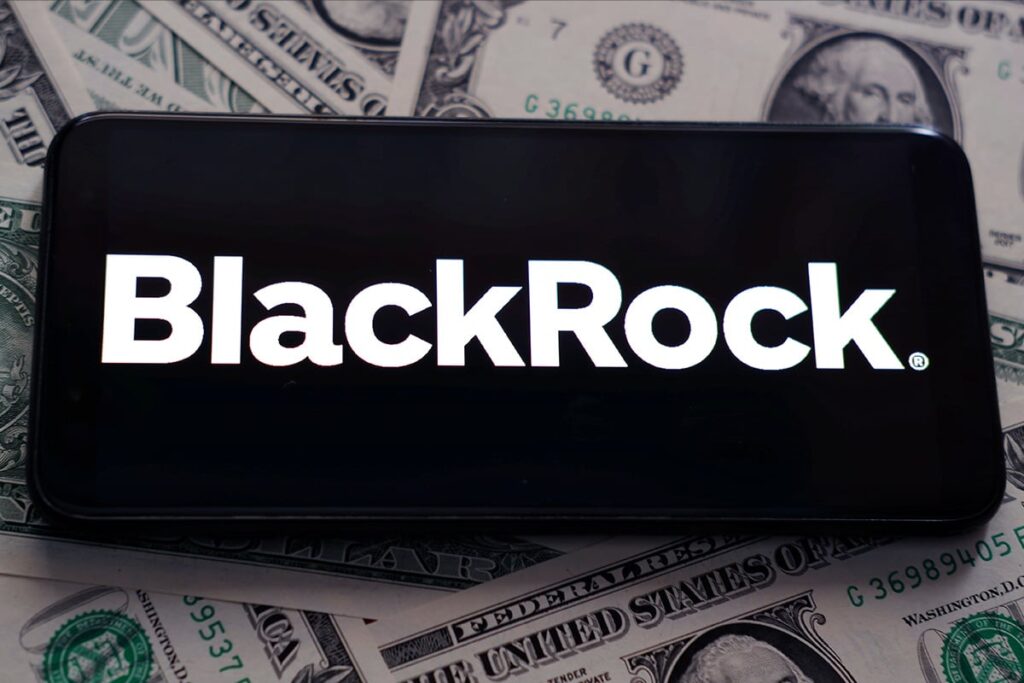TLDR
BlackRock manages $13.5 trillion in assets and $104 billion in crypto.
The asset tokenization market is valued at over $2 trillion in 2025.
BlackRock’s tokenized BUIDL fund holds $2.8 billion in digital assets.
Larry Fink now compares crypto’s role in portfolios to that of gold.
BlackRock CEO Larry Fink believes that tokenization—the digital transformation of traditional financial assets—will shape the future of global finance. Speaking on CNBC’s Squawk on the Street, Fink said that transferring assets like ETFs, bonds, and equities into digital tokens can help new investors transition into long-term products. With $13.5 trillion in assets under management, BlackRock is positioning itself to lead this technological shift.
BlackRock Eyes Tokenization as a Long-Term Growth Strategy
Larry Fink described tokenization as the next major opportunity for BlackRock over the coming decades. He explained that digitizing traditional financial instruments can connect new investors, especially those in the crypto space, to more stable financial products.
“If we can tokenize an ETF, digitize that ETF, we can have investors who are just beginning to invest in markets through, let’s say, crypto,” Fink said. He added that such innovation would allow investors to remain within a digital ecosystem while gaining access to retirement-focused products.
BlackRock plans to integrate tokenization across several divisions. Teams within the company are currently exploring different approaches to digital assets. Fink said that this transition will help investors move from traditional formats toward digitally managed products that can enhance efficiency and accessibility.
Tokenization Market Shows Early Promise
Although tokenization remains in its early phase, Fink said the potential is broad and long-term. He noted that the process could apply to real estate, bonds, equities, and other assets. “I do believe we’re just at the beginning of the tokenization of all assets,” he said.
According to data from Mordor Intelligence, the global asset tokenization market is valued at over $2 trillion in 2025 and is projected to exceed $13 trillion by 2030. This early-stage growth shows strong interest from financial institutions and technology firms seeking to modernize asset ownership and trading.
BlackRock’s Digital Liquidity Fund Leads the Way
BlackRock has already launched the BlackRock USD Institutional Digital Liquidity Fund (BUIDL), which manages about $2.8 billion. The fund, introduced in March 2024, represents the largest tokenized cash market fund in existence. Through this initiative, BlackRock aims to demonstrate how digital platforms can improve liquidity and transparency in asset management.

Fink said that BlackRock’s move into tokenized funds reflects its broader goal of integrating blockchain technology into traditional finance. The company views tokenization as a way to make asset management more efficient, with faster settlements and clearer ownership records.
Shift in Perspective Toward Crypto Assets
Fink’s stance on digital assets has evolved over the years. In earlier statements, he was critical of cryptocurrencies, describing them as an “index of money laundering.” However, his recent remarks show a different outlook. He now sees crypto as a legitimate asset class within diversified portfolios.
“There is a role for crypto in the same way there is a role for gold; it’s an alternative,” Fink told CBS’s 60 Minutes. He said that while crypto should not make up a large portion of a portfolio, it can serve as a hedge for investors seeking variety in their holdings.
BlackRock currently manages about $104 billion in crypto assets, accounting for roughly 1% of its total portfolio. As the company continues exploring blockchain integration, its leadership signals a broader acceptance of digital finance within mainstream investment strategies.



